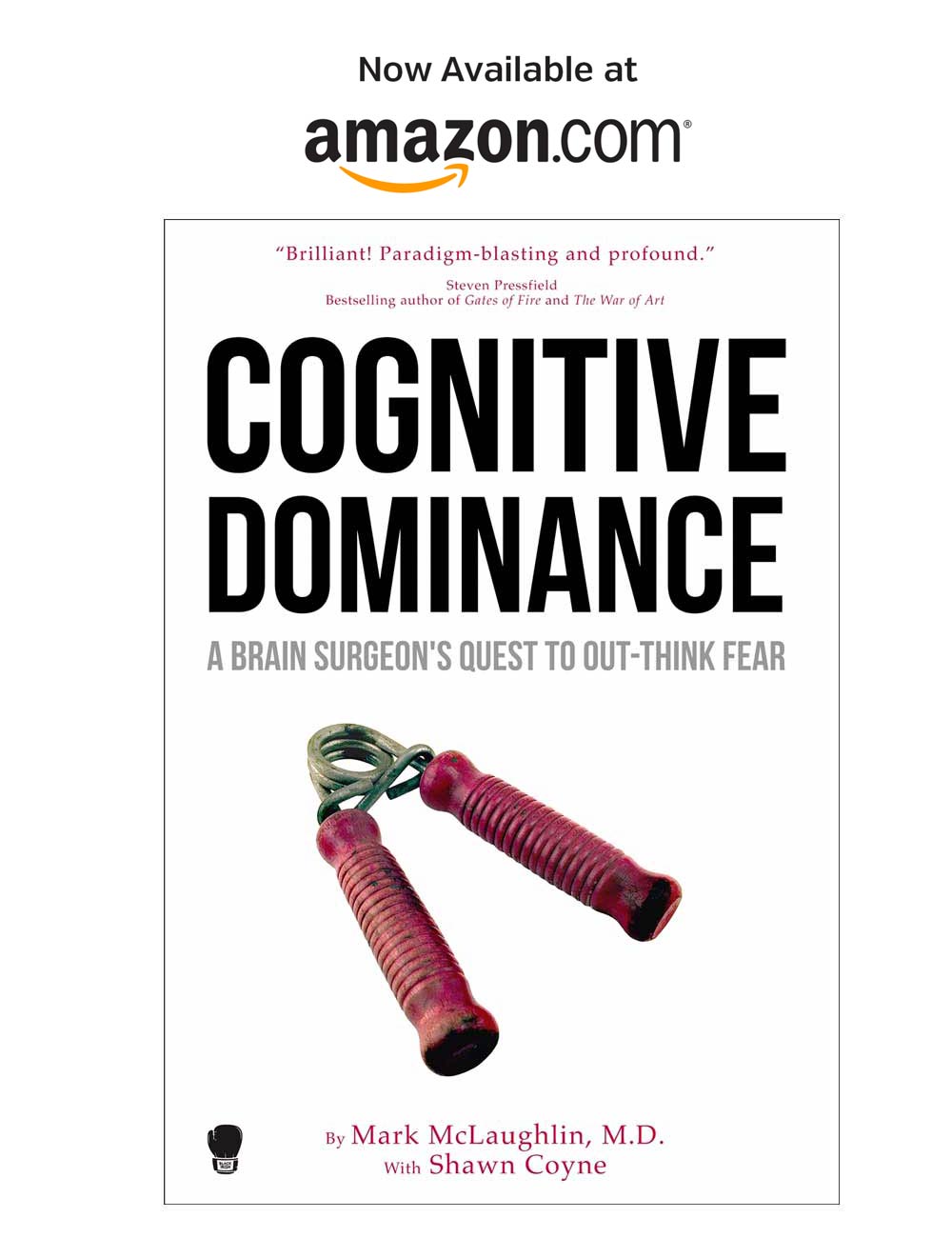Psyched Up by Daniel McGinn - Book Review

How the Science of Mental Preparation Can Help You Succeed
By Daniel McGinn
We are all searching to achieve optimal performance. No matter what you aspire to accomplish this elusive state depends in large part on one’s mental mindset. As a neurosurgeon, I am acutely aware of how important this experience is. My patients’ lives often depend on it.
In researching literature for my upcoming book, I recently re-read a great book on elite performance. What’s unique about this book is the author focuses on how to have the best frame of mind when the pressure’s on. Psyched Up: How the Science of Mental Preparation Can Help You Succeed, written by Harvard Business Review journalist Daniel McGinn, covers the entire landscape of mental prep for high achievement. I thought I knew the whole story on this topic, but Psyched Up taught me new techniques that I can use in my daily life. (Full disclosure: I was honored to be a subject in the book’s introduction).
Being a sports psychology junkie, I knew I’d love the book. Many of its techniques are especially relevant to athletic events where victory may depend on one key moment. McGinn pays special attention to how to overcome demons of self-doubt and distraction that can override skills and preparation.
Much of what McGinn offers here supports what I learned from Dr. Nate Zinsser, a brilliant pioneer in the field of sports psychology and Director in the Center for Enhanced Performance at West Point. Doc Z has been my mentor, colleague, and close friend for some thirty-five years. He has helped me become a winner from my early days as a high school wrestler, through becoming a neurosurgeon, to expanding my horizons as a young professional.
Psyched Up shatters some myths. It shows how trying to calm oneself when having anxiety before a big moment, for example, can actually be counterproductive. A better option is to reframe one’s pre-game anxiety as excitement rather than worry. This technique is especially valuable in high-pressure venues such as singing competitions. Use of positive self-talk and imagery are key. Imagining what a successful performance looks like helps athletes in particular achieve at a higher level. I learned this from Doc Z in my early wrestling days, and I use the same approach as a neurosurgeon. He taught me to visualize my greatest wrestling moments before a match, and to remember the sights and sounds around me during those moments. This helped stop me from overthinking and put me into an autopilot mode that let my body do its stuff. Distractions faded into the background. Thanks to Doc Z’s guidance, I became a wrestler who rarely lost.
McGinn shows that it is more productive to focus on doing one’s best than on success. This takes the obligation aspect out of the equation; instead, the focus is on the opportunity to perform. McGinn cites the work of Stanford psychologist Carol Dweck, who found that “focusing on inputs (such as effort) instead of outputs (such as winning or losing) puts people into a ‘growth mindset’ that helps them perform better and improve over time.”
Sticking with the same routine before a performance has also been proven to have a positive impact—even, in some cases, when it has no relevance to the activity to come. Famed baseball player Wade Boggs, for example, ate chicken before every game. Having the same pre-game meal helped “prime” him for play, by having a positive association with the activity to come. The key is to find a ritual that works for you. Some surgeons listen to rock music and chat it up with their team to get fired up for an upcoming surgery. I, on the other hand, listen to a Bach Cantata on my phone at low volume while I sit quietly alone pre-surgery and always play country/Americana music (even specific artists/playlist) during the case.
A full discussion of Psyched Up is beyond the scope of this blog. But I offer some pearls of pre-performance mental preparation based on McGinn’s research. Below, I summarize the seven steps of centering (which were gleaned from Don Greene’s Fight Your Fear and Win):
- Clear intention—Focus on a single goal.
- Pick a focal point—Aim your eyes toward an unimportant distant point.
- Breathe mindfully—Shut your eyes. Take some deep breaths, in through your nose and out through your mouth.
- Release muscle tension—Progressively relax your muscles, starting at your head and moving down your body. Inhale as you focus on a new area per inhale (I was taught to throw my shoulders back, and open my chest and heart.)
- Find your center—Focus on a spot inches below your navel and two inches below the surface of your belly.
- Repeat your process cue—Use a phrase meant to trigger a specific action that gets you toward your intention (For example, for a golfer it might be “smooth, good tempo.” For a negotiator, “ask questions and be friendly.”)
- Direct your energy—“Hurl” excess energy at the focal point you identified in step 2.
The facts are clear: proper mental preparation primes you for higher levels of achievement. It helps you redeploy negative anxiety to positive. It keeps you focused on what you know you can do rather than on fear of what might go wrong.
Want to psych up for success, no matter what the arena? Psyched Up will be an invaluable guide. I heartily recommend it.
Rated 4.5 Brains

